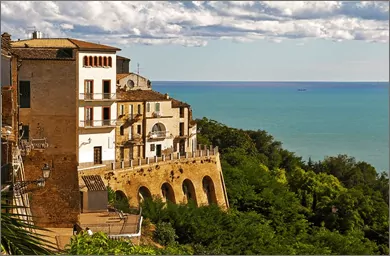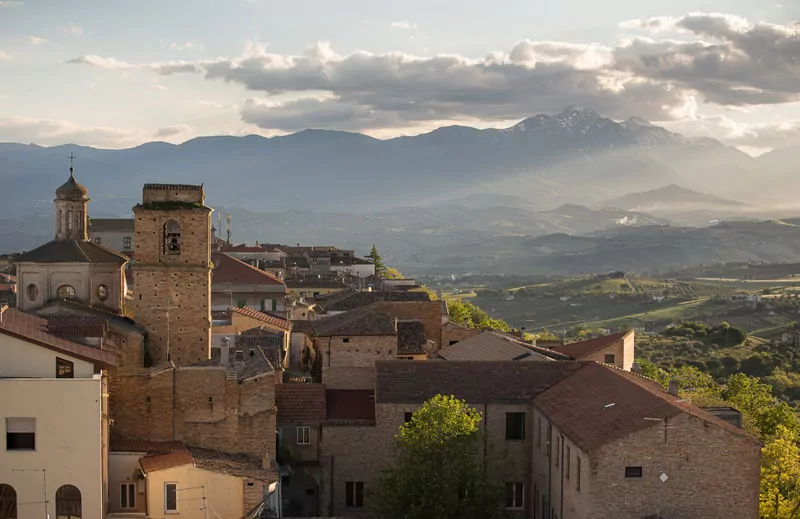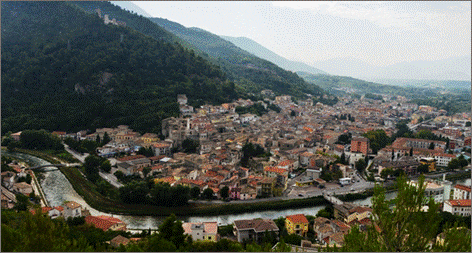Bureaucracy.
This is the most common word used to describe the property-buying process in Italy. An official public notary is appointed by the Italian Ministry of Justice to oversee the real estate-buying process. So you might think that Italy is one of the few countries where foreigners can navigate the purchase process unscathed without an attorney…
Well, you’d be wrong.
The notary acts as a neutral party in the transaction, as his only job is to follow Italian law. The final deed, although prepared by the notary, is based on the contract details established by the buyer and seller. The notary’s job is strictly to ensure that everything is legal.
Your attorney is responsible for conducting due diligence on the property, negotiating the best contract terms and conditions, helping the notary draft the deed, providing legal advice, and coordinating payment transfers. Your attorney ensures that everything has been done correctly on your behalf.
Foreign Ownership With Few Restrictions
For the most part, Italy does not restrict foreigners from buying real estate. However, in some cases, you may encounter preemption rights, which could significantly slow the process or even kill the deal.
Preemption rights apply to agricultural land, property occupied by renters, and property with historical or architectural value.
For example:
- Agricultural land – If you purchase agricultural land, farmers currently leasing that land or neighboring farmers have preemption rights to purchase the land before you.
- Tenanted property – If you purchase a property that currently has a tenant, the renter has the opportunity to purchase the property under the same terms or conditions.
- Property with historical or architectural significance – Public authorities have preemption rights over any property that is determined to have historical or architectural value.
While the seller is responsible for handling this part of the process, it’s important that you make sure he complies with this legislation, or you could lose your property on a technicality. The only legal recourse is against the seller—and you don’t want to deal with the Italian courts.

panoramic sea view property in Vasto, Abruzzo…
Buying And Holding Your Property
You can hold title to Italian real estate in several ways, including:
- Your individual name;
- A self-directed IRA set up in an LLC;
- A foreign corporation or LLC;
- A foreign trust;
- An Italian LLC or SRL (società a responsabilità limitata);
- An Italian corporation or SpA (società per azioni);
- An Italian trust.
How you take title depends on your desired level of asset protection and privacy, tax and estate planning, residency and visa requirements, and your investment objectives.
If you take title in an entity, you have to consider the extra costs associated with the setup and administration of the holding entity. Further, it’s important that you consult with your attorneys, both at home and in Italy, along with your CPA to decide which structure makes sense for you. Get this right the first time and you’ll avoid future unwanted administrative headaches and tax liabilities.
The Buying And Closing Process

palazzi, piazzas, churches… and maybe your next home
First you need to find a registered real estate agent. By law, brokers or agents must be registered with the local chamber of commerce and hold a special identification card. Request proof of registration from any person claiming to be a registered agent to verify that they’re legitimate. Also, Italian law requires agents to maintain a liability insurance policy for the protection of their clients.
To get the best prices, deal directly with local Italian agents. Prices tend to be higher with English-speaking real estate agents with Italian-based agencies. Beware of net pricing, where the agent lists the property significantly higher than the seller’s asking price.
As many local Italian agents speak English, this should not be an issue.
You’ll also need to hire a licensed attorney to ensure you don’t encounter any surprises. Your real estate agent will usually have an attorney they recommend, but I’d suggest that you also consider other attorneys. You and your attorney will then select the notary who will oversee the entire transaction.
Additionally, you will need a surveyor (geometra) to ensure that the property is physically sound, habitable, and meets all of the municipality’s building requirements. Your attorney probably has a preferred and trusted geometra.
The buying process involves seven steps:
- Codice fiscale or partita IVA*;
- Offer and acceptance of purchase proposal;
- Preliminary contract;
- Preparation of final deed;
- Closing and signing of final deed;
- Registration of title deed;
- Payment of all applicable taxes.
*To purchase property in Italy, you need to obtain a tax number. If you take title in your own name, you’ll need a codice fiscale. If you use a corporate entity, then you’ll get a VAT number or partita IVA. A tax number is needed to open a bank account, sign contracts, and establish utility accounts.
Next you make an offer in the form of a purchase proposal. This contract is not binding until both parties have signed. The primary goal of this document is to give you and your attorney time to perform due diligence and ensure that the seller does not sell the property to anyone else.
A good-faith deposit (earnest money) may be requested by the seller after the offer has been accepted. If so, deposit the money into an escrow account for your protection and to maintain leverage in the transaction. Your attorney can arrange this. This minimizes your exposure and allows you to come back to the negotiating table should you discover major problems during your due diligence. If you uncover a serious issue, you can back out of the deal with your cash in hand.
After the purchase proposal is accepted, your attorney and the geometra will investigate the property.
They will check:
- Title and seller’s proof of ownership;
- Property registration with the land registry;
- Existing mortgages or encumbrances;
- Compliance with the tax authorities;
- Building compliance with municipality regulations;
- Occupancy status of property (tenants or farmland lease);
- Preemptive or third-party rights over the property;
- Condo association status (outstanding repairs, deferred maintenance, fees owed);
- Condition of electrical, heating, and plumbing systems;
- Evaluation of any energy requirements (energy certificate).
After passing the due diligence stage, the notary and your attorney draft the preliminary contract. It includes the property description, the agreed-upon price, closing date, amount of deposit paid, existing mortgages, what’s included (furnishings and fixtures), and all other important contractual points.
Once the preliminary contract has been signed by both parties, the buyer pays a deposit of 10% to 30% of the overall sale price. The agreement is then registered at the local tax office by the real estate agent or attorney.
The preliminary contract is now legally binding. In the event the buyer backs out of the deal, he loses his deposit to the seller. On the other hand, if the seller defaults on the contract, he’ll have to pay the buyer double his deposit.
Both parties can avoid these penalties by inserting conditional clauses in the contract. Essentially, if any of the conditions aren’t met, the contract can be voided, and both parties walk away from the deal unharmed with the buyer’s deposit refunded.
When the conditions of the preliminary contract have been met and the required documentation has been provided, the notary prepares the final deed.
At this time, the buyer’s funds must be available to finalize the purchase. If the buyer will not be present at the closing, he can designate someone with his power of attorney or procura. Even if the buyer is at the closing, if he is not fluent in Italian, he needs a procura to act on his behalf.
The closing takes place in the notary’s office. The buyer (or his procura) and seller will sign the deed of sale, and the remaining balance due plus all applicable taxes and fees are paid via check or bank transfer. Once the balance has been paid, the property is officially transferred.
After completing the sale, the notary registers a certified copy of the deed with the land registry and the local tax office. They also notify the local police authorities of the sale. The notary pays any pending taxes, including the registration tax or stamp duty, cadastral and land registry tax, and mortgage duty tax, if applicable.
Expect the entire buying process from offer to closing to take a minimum of 90 days. Total closing costs range between 8% and 20% of the total purchase price, including all applicable taxes and fees for professional services including the real estate agency, notary, attorney, geometra, and translator.
How Much Does Property Cost Here?

Move-in ready units start at 800 euros (US$908) per square meter and go up to as much 5,000 euros (US$5,676) a square meter for brand-new luxury construction on the beach. Agricultural land will start at around 2,000 euros (US$2,270) per hectare.
Depending on where and what you buy, the prices for fixer-uppers start at as low as 100 euros (US$113) per square meter up to as much as 1,000 euros (US$1,135). You should expect to spend around 1,000 to 1,500 euros (US$1,135 to US$1,702) per square meter to build a new home from the ground up, depending on the quality of finishes chosen.
Omar Best

